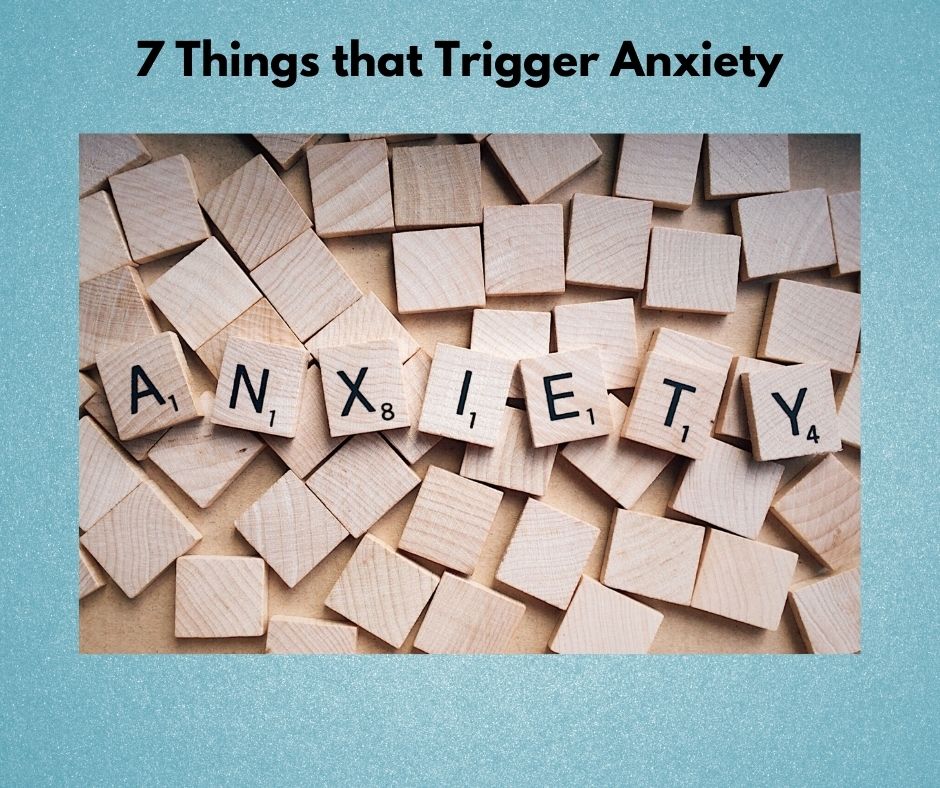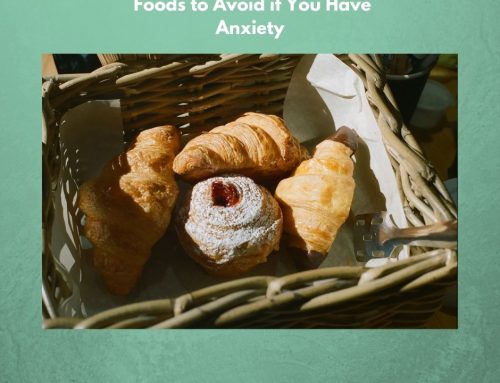Anxiety and anxiety disorders are one of the most common mental illnesses. For those of you struggling with anxiety, it can often feel like you’re trapped inside your body. It feels uncomfortable, foreign and a place you want to escape from as fast as possible. Anxiety is frustrating because it has a way of capturing all of our fears and magnifying them 10-fold.
What can be done? How can you overcome it? What can you do to feel better? Stressful situations and the unknown can trigger anxiety and although it’s not always possible to avoid these triggers, knowing what they are can help you be ready with interventions and strategies.
Here are some common triggers:
- Overthinking: When we overthink, we create problems in our minds that don’t even exist. Overthinking involves worrying about things in the future, things that likely haven’t happened. Overthinking usually happens during quiet times, such as at night when our minds are given the opportunity to run wild. During these times, meditation and other relaxation techniques that help clear your mind can work great.
- Relationships: Relationships can be difficult, not just romantic ones, but friendships and family relationships as well. If you are always feeling stressed out and anxious when with someone, it may be time to listen to what your body is telling you. Perhaps that person is not for you. Unfortunately, putting yourself and your feelings ahead of a loved one is not always easy. It’s important to listen to your feelings and your body. When it comes to relationships that cause you anxiety and stress, the most important thing to do is set boundaries. Boundaries that honor and respect how you’re feeling.
- Illnesses: Illnesses are the cause of anxiety in many people and unfortunately cannot be avoided. They can be the ultimate unknown factor. Whether it’s your own illness or the illness of someone in your life, not knowing what the future holds can be very difficult and can trigger anxiety. It’s during times like these that reaching out for the support of others is important.
- Meeting New People: Meeting new people is part of having social anxiety. Social interaction can be very difficult for some people. Fear of being judged, saying the wrong thing, not looking quite right, making a mistake…these all contribute to being afraid of meeting new people. Approaching these fears one step at a time can be helpful. When trying to overcome social anxiety, try one step at a time. For example, step one, go somewhere where there will be people that you don’t know. Step two, make eye contact with someone new. Step three, say hello to someone new. Taking it in steps can make it feel less overwhelming. Create a fear ladder for yourself and don’t worry about how long it takes to get to the top.
- Finances: Worrying about money is one of the top stressors for people. Fear of having enough to take care of a family and financial obligations can make anyone anxious. These days with the pandemic, some people’s livelihoods are at risk and their anxiety levels are even higher. One way to handle financial anxiety is to be prepared and have a plan. Get help, speak to a financial advisor and make a plan/budget. Be proactive as opposed to avoiding or overthinking the situation.
- Work: Being unhappy in your job/career can be a huge source of anxiety, stress and depression. Work takes up a lot of our adult life and for some of us, we spend more time at work than at home. It’s so important to try and find a job/career that makes us happy and satisfied. Unhappiness in your career can bleed down into your personal life and can impact your family, relationships and individual happiness. Not everyone has the freedom to look for a new job if they’re unhappy in their current position. Therefore, it’s important to learn how to manage work anxiety by balancing work and home. At the same time, perhaps consulting with a career counsellor or a headhunter to find something more satisfying is an option.
- Confrontations: Confronting someone with how you feel can provoke a lot of fear and anxiety. For some of us, avoiding confrontation can be easier, but doesn’t erase the feelings of anxiety or fear, in fact, it can just prolong it. Putting off talking to someone about how you feel, increases uncertainty about the unknown. There are other ways to “talk” to someone that can help ease the fear of a face to face. In these days of technology, email and texting are forms of communication that can help ease the fear of confrontation. Writing a letter can also be a great way to express yourself. It gives you time to think about what you want to say without fear of the other person’s reaction. Whichever way you choose to express yourself, it’s always healthier to be honest than to hold your feelings inside.
The first step to dealing with your anxiety is to learn to recognize what your anxiety triggers are, how it makes you feel and how you react to those feelings. Once you are able to identify your thoughts, feelings and behaviors, you can implement some strategies that will help you stand up to your anxiety and gain control of your life.






